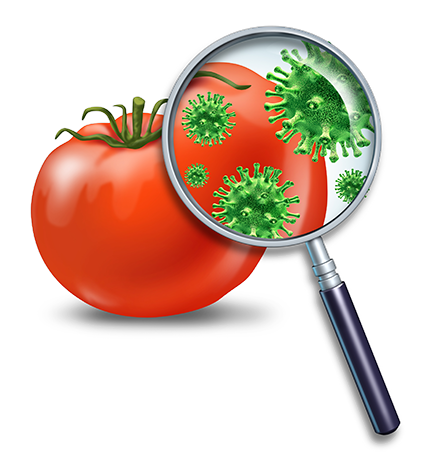3/13/2015
As the world prepares for The Food Safety Modernization Act (FSMA) to officially roll out later this year, food processors are already preparing for the impact.
The FSMA and Your Business
The Food Safety Modernization Act represents the most significant expansion of food safety requirements and FDA food safety authorities since the original enactment of the FDCA in 1938. It identifies the need for a modern, global food safety system that focuses on tackling food safety issues before they arise.

The FSMA mandate is broad and includes an overhaul of the FDA food safety program by focusing on:
- Prevention: For the first time, FDA has a legislative mandate to require comprehensive, prevention-based controls across the food supply.
- Enhanced Partnerships: Leveraging and integrating state and local food safety systems with federal efforts to enhance nationwide quality, consistency, and efficiency.
- Imported Food Safety: Implementing an entirely new import oversight program that relies on importers taking greater responsibility for the foods brought into the U.S.
- Risk-Based Priority: Improving resource management to improve food safety through risk-based priority setting and resource allocation.
- Increased, Targeted Inspections: Increasing the frequency and enhancing the targeting of inspections based on food safety risk and performance.
(source www.fda.gov)
Initiators of Change
A recent survey in the March/April 2015 issue of Food Manufacturing Magazine revealed some interesting findings regarding what currently prompts safety changes at food processing facilities. Of those surveyed:
- 69% will make a change when new products are being processed
- 68.6% update their food safety plan when new equipment is purchased
- 67% will make a change to their plan if they discover a better or more efficient way of doing things
- Regulations changes are responsible for 63% of respondents changing their food safety plan
- 58% make updates to their food safety plan when a new ingredient is used
Support in Numbers
So what is the overlying theme? Most of these changes fall under the umbrella of having a good Hazard Analysis and Critical Control Points (HACCP) plan. Your HACCP system is crucial for assessing risks and putting controls in place to minimize those risks. Once new factors or variables are introduced into your existing, verified and validated plan, the plan must then be updated. Nothing can doom a food processor faster than a food recall, or worse yet deaths, due to consumption of tainted food.
Get Ahead of the Game
While most companies tend to resist change and the increase of a regulatory presence, the food industry seems to be supportive and proactive in their efforts to produce the safest food possible, ahead of schedule.
Let MMTC assist you! To help navigate the uncertain waters ahead, MMTC offers Food Tools of the Trade, a comprehensive, three-day program covering food safety topics, process improvement techniques, and strategies for increasing efficiency. With more than two decades of experience in continuous process improvement, MMTC's expertise will prove vital when making changes and updating your procedures.
DON'T WAIT, REGISTER TODAY
Food Tools of the Trade Program
May 5-7, 2015 | Plymouth, MI
LEARN MORE
Categories: Food Processing